- Details
- Category: Senator Julie A. Morrison News
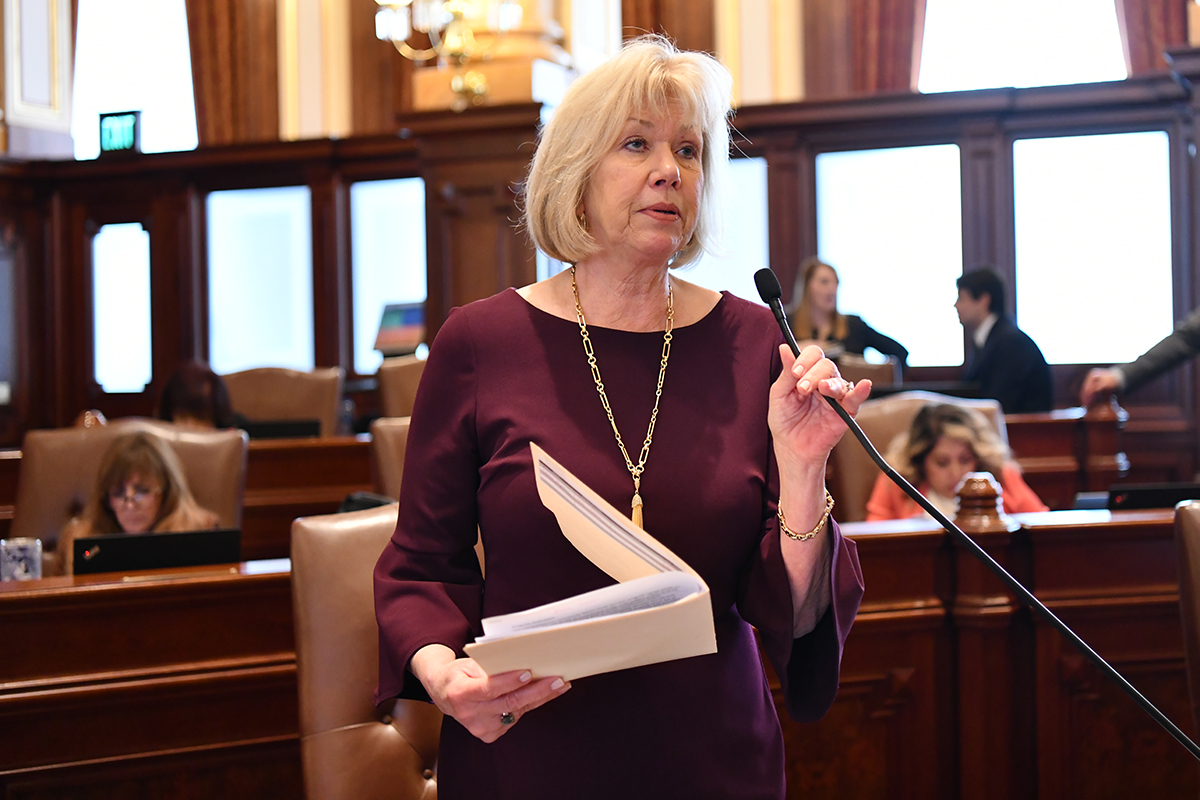
SPRINGFIELD – The price of EpiPens has greatly increased over the years, causing people with certain allergies to forgo purchasing the life-saving medication. State Senator Julie Morrison (D-Lake Forest) strives to offset the burdensome cost by requiring insurers to cover medically necessary epinephrine injectors.
“With increases in food allergies and other serious allergic conditions, people are relying on EpiPens more than ever,” Morrison said. “Nobody with a serious allergy should go without an epinephrine injector simply because they cannot afford one.”
Senate Bill 2457 – sponsored by Morrison – requires insurers to cover medically necessary EpiPens for all people – regardless of age.
Read more: EpiPens for all one step closer to becoming reality
- Details
- Category: Senator Julie A. Morrison News
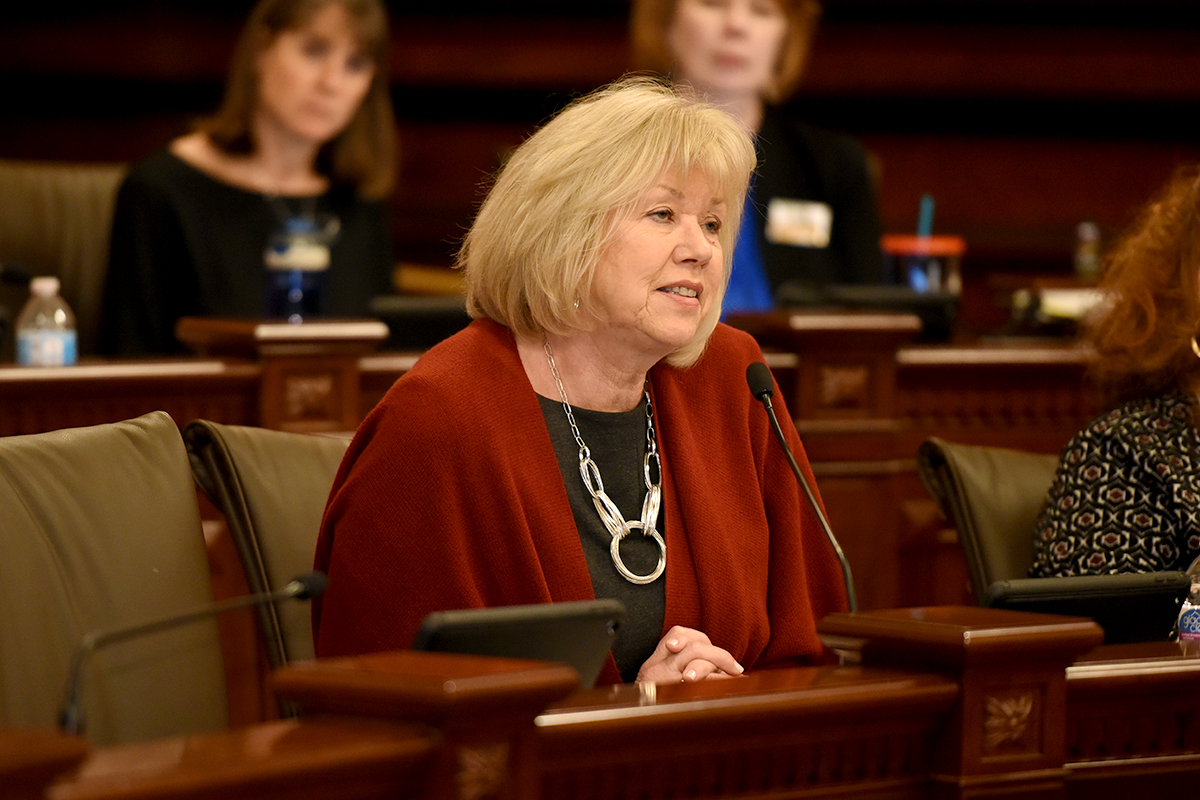
SPRINGFIELD – Since the demand for behavioral health services has grown and the behavioral health workforce is still experiencing shortages, a task force was created to study the crisis. Findings from the study were shared with State Senator Julie Morrison (D-Deerfield) and the Senate Human Services Committee Tuesday.
“This has been a major concern in Illinois for years, but as a demand for service grows and the workforce diminishes, it has gained an even greater sense of urgency,” Morrison said.
Among the recommendations outlined by the task force was a plan for creating the Illinois Behavioral Health Workforce Education Center to lead a cross-agency, cross-sectorial strategy to improve access to a qualified, diverse workforce.
Read more: Morrison: Illinois needs centralized behavioral health plan
- Details
- Category: Senator Julie A. Morrison News
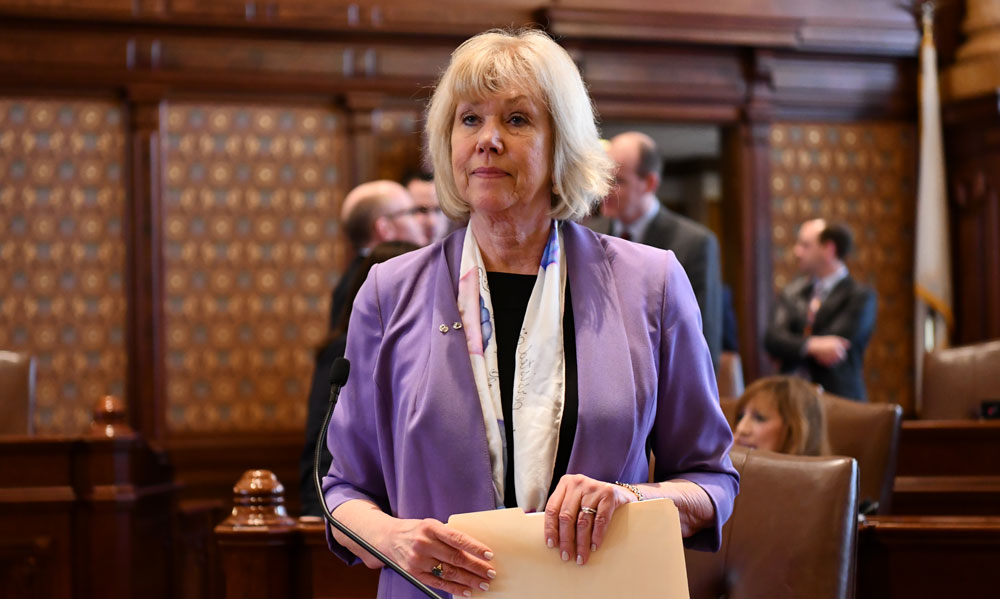
SPRINGFIELD – State Senator Julie Morrison (D-Lake Forest) took a moment to rise on the Senate floor Thursday to honor and recognize the victims of Wednesday’s shooting at the Molson Coors plant in Milwaukee, Wisconsin.
Morrison asked the body to take a moment of silence to honor the victims of the tragedy.
Below are the senator’s floor remarks:
“Yesterday, five people tragically lost their lives in Milwaukee after a man opened fire on the Molson Coors plant before turning the gun on himself.
“Such violence is senseless. Six families went to bed last night mourning the loss of a loved one. Those families, and all the families who have lost someone to gun violence, need us right now.
“We can all recognize these tragic events are happening far too regularly. No one should have to fear for their safety when they go to school, the grocery store or even work. When will we have enough?
“I ask that you please stand silently for a moment of reflection and respect. Words do not adequately express the tremendous grief I feel as I have to make this speech once again.”
- Details
- Category: Senator Julie A. Morrison News
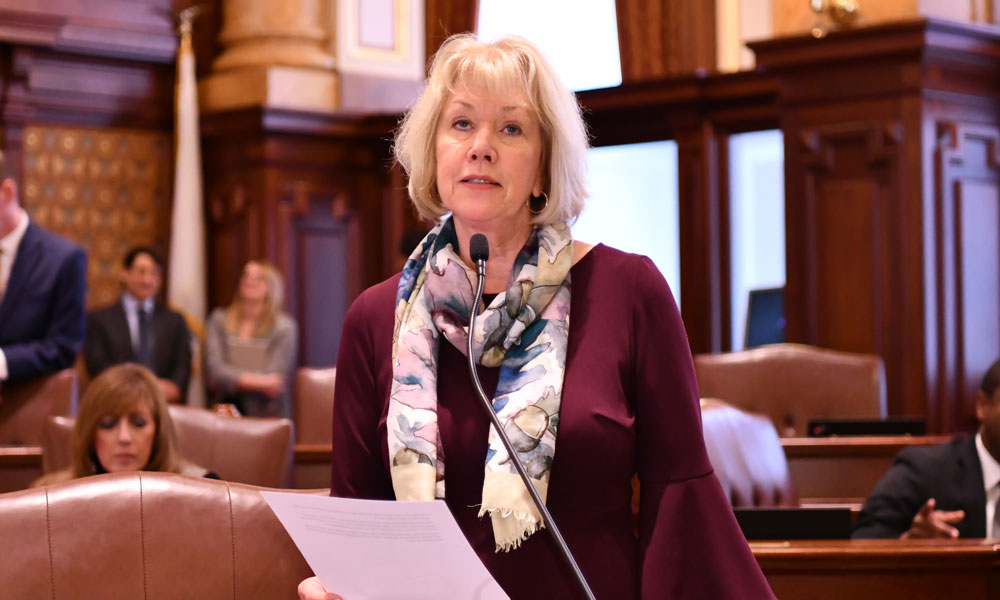
SPRINGFIELD – Dental hygiene is directly linked to a person’s overall health, but many Illinoisans aren’t receiving the proper care they need due to the high cost of treatment or because the lack of coverage for anesthesia. State Senator Julie Morrison (D-Deerfield) hopes to curb the price of dental care by requiring Medicaid to extend its coverage.
Two bills attempting to address dental care services that are either not covered or under-reimbursed by Medicaid were part of a subject matter hearing in the Senate Human Services Committee Tuesday.
Senate Bill 2484 expands coverage of dental care and anesthesia for those with autism or a developmental disability to make those individuals more comfortable when visiting the dentist.
Read more: Morrison measure expands dental care for people with developmental disabilities
- Details
- Category: Senator Julie A. Morrison News
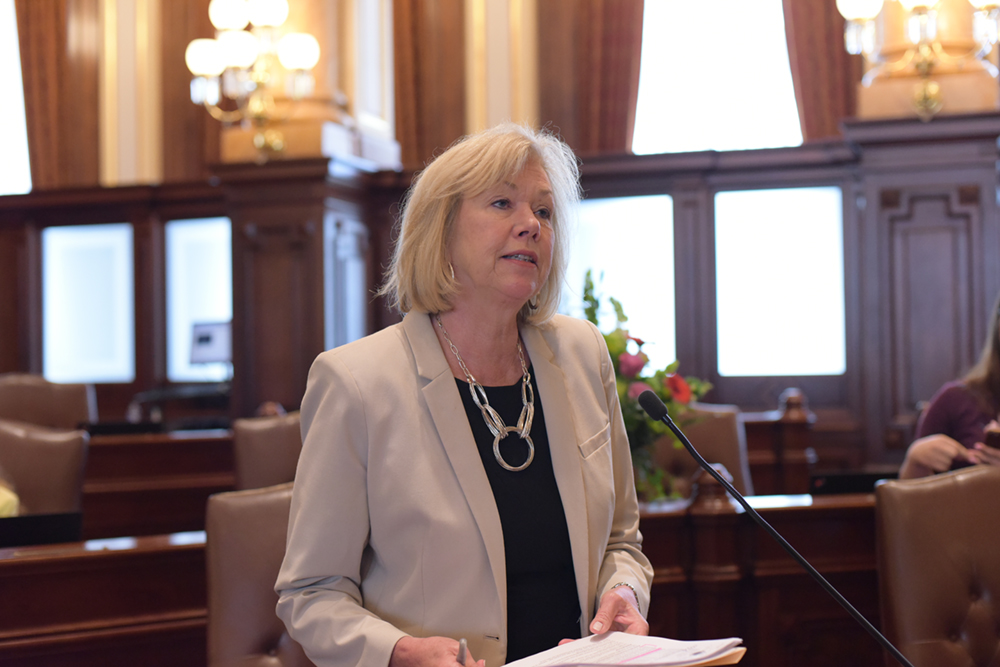
SPRINGFIELD – State Senator Julie Morrison (D-Lake Forest) released the following statement after former Gov. Rod Blagojevich was commuted by President Donald Trump Tuesday:
“The commutation of Rod Blagojevich’s sentence by President Trump is yet another reason ethics reform must be passed at both the state and federal level. We must pass ethics reform during this legislative session to ensure we never have another case like Blagojevich’s. We must also hold elected officials to the highest standards and work to end political corruption.”
- Details
- Category: Senator Julie A. Morrison News
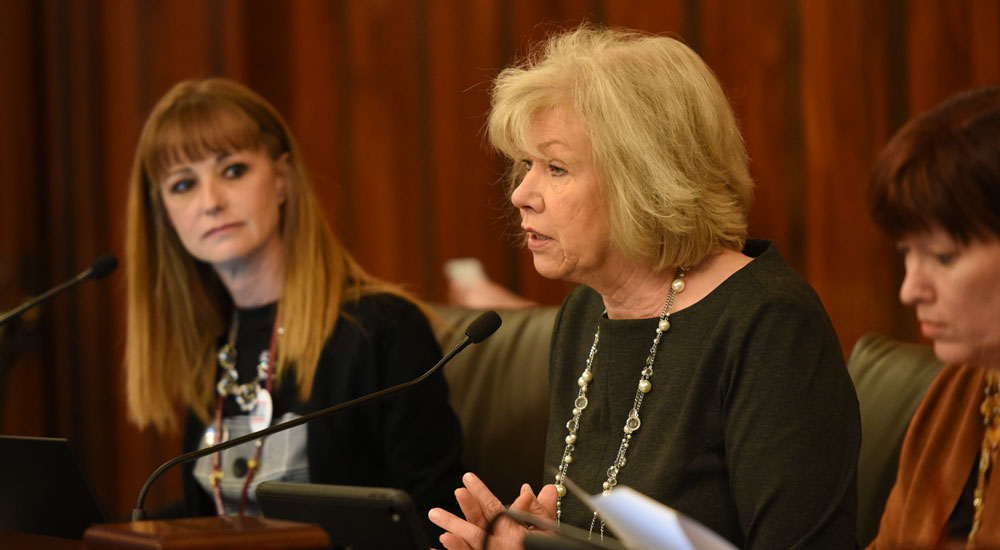
State Senator Julie Morrison (D-Deerfield) and State Senator Heather Steans (D-Chicago) led a conversation Tuesday about the oversight of Medicaid managed care and the transition of DCFS children into the program.
“The state is responsible for these children and must make sure they have access to health care,” Morrison said. “I wouldn’t want my own child to be enrolled in this poorly managed program.”
The hearing comes just days after nearly 19,000 adopted children and former foster children transitioned to Medicaid managed care. Of those 19,000 people, at least 2,500 were affected by a glitch that has left them without insurance since Saturday.
Read more: Senators call for answers on DCFS insurance switch
- Details
- Category: Senator Julie A. Morrison News

SPRINGFIELD – Following a wave of corruption and indictments among state officials, Senator Julie Morrison (D-Deerfield) is calling on lawmakers to pass a comprehensive ethics package, including restrictions on revolving door lobbying, updates to the statement of economic interest forms and new provisions regarding conflict of interest.
“People should not be allowed to be a lawmaker one day and a lobbyist the next,” Morrison said. “Stopping lawmakers from auditioning for jobs with special interests while still in office will help end the glaring corruption taking place in Springfield.”
Since joining the Illinois Senate in 2013, Morrison has introduced bills each session to block the lawmaker-to-lobbyist revolving door. Those measures would prohibit lawmakers who resign from their post from taking jobs as Illinois lobbyists for a certain amount of time after they retire. However, they never made it through the legislature.
- Details
- Category: Senator Julie A. Morrison News
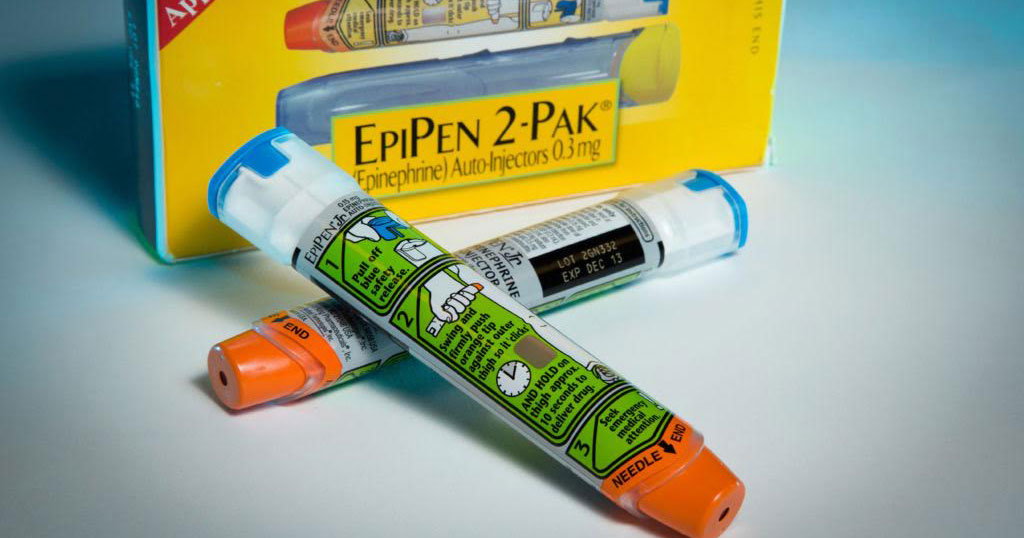 SPRINGFIELD – The price of EpiPens has greatly increased over the years, causing people with certain allergies to forgo purchasing the life-saving medication. State Senator Julie Morrison (D-Deerfield) strives to offset the burdensome cost by requiring insurers to cover medically necessary epinephrine injectors.
SPRINGFIELD – The price of EpiPens has greatly increased over the years, causing people with certain allergies to forgo purchasing the life-saving medication. State Senator Julie Morrison (D-Deerfield) strives to offset the burdensome cost by requiring insurers to cover medically necessary epinephrine injectors.
“With increases in food allergies and other serious allergic conditions, people are relying on EpiPens more than ever,” Morrison said. “Nobody with a serious allergy should go without an epinephrine injector simply because they cannot afford one.”
Senate Bill 2457 – sponsored by Morrison – requires insurers to cover medically necessary EpiPens for all people – regardless of their age.
In 2019, Morrison passed legislation to require insurers to cover medically necessary epinephrine injectors – also known as EpiPens – for minors. However, she wants to take the law one step further by removing the age limitation.
Epinephrine injectors deliver the drug epinephrine to individuals experiencing a severe allergic reaction. Epinephrine works by narrowing blood vessels and opening lung airways, reversing the symptoms of an allergic reaction that, if left untreated, can cause death.
“This is a life-saving medicine and it shouldn’t be too expensive for those who need it,” Morrison said. “We must do everything we can to make sure people can afford medically necessary medication.”
More Articles …
Page 26 of 29













 © 2026 Illinois Senate Democratic Caucus
© 2026 Illinois Senate Democratic Caucus